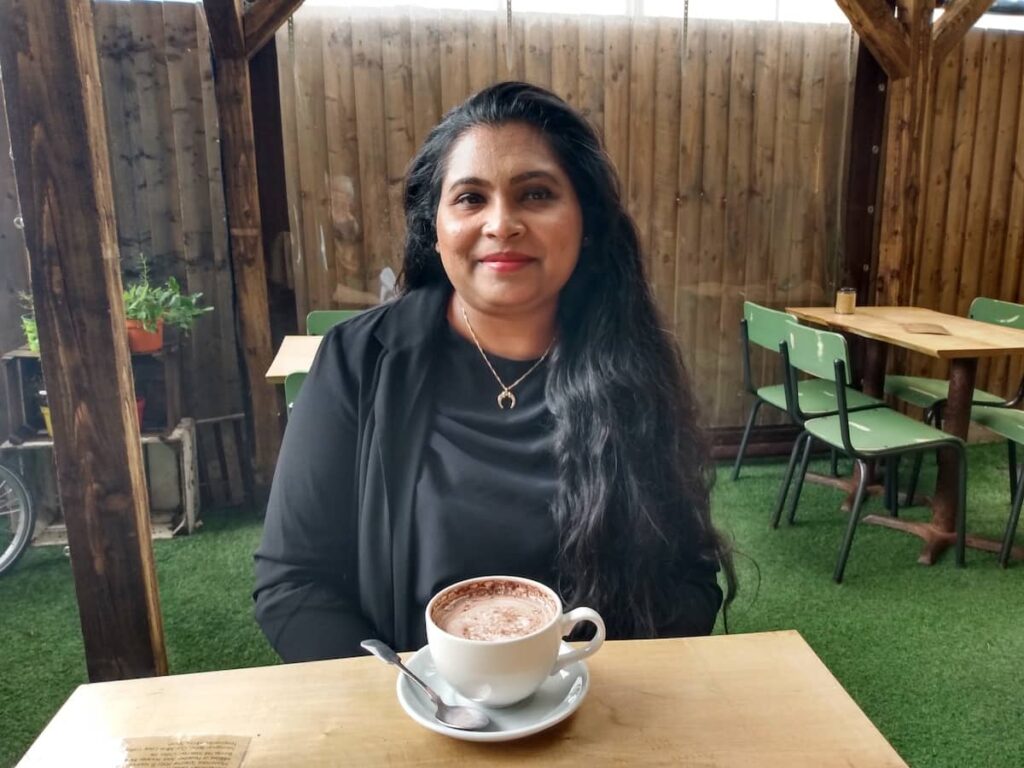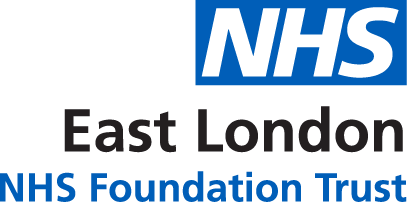Early Support Transforms Lives

Narenza Dhanasar is a Registered Mental Health Nurse who has spent a large part of her nursing career working in primary care supporting homeless people. However, in January 2021, she took the unusual step of leaving the ELFT team at Health E1 Homeless GP practice in Tower Hamlets and she now works in the Newham Child and Adolescent Mental Health Service. Trusttalk caught up with her to find out what prompted her to move to a completely new specialism.
How did you come to work with homeless people?
I started my mental health nursing training in 2006 and qualified in 2009. It was witnessing first-hand the experiences of those diagnosed with mental health illness that inspired me study Mental Health Nursing. I wanted to understand how I could help. It's a career that is challenging, interesting and makes a difference in peoples' lives on a daily basis.
I have worked with both children, young people and adults throughout my nursing career. The homeless population is very complex and I realised with the right support and help, people can go on to lead fulfilled lives.
What were the highs and lows of working in this field?
It was overwhelming at times. Individuals were hard to engage with. They had no phone, they had disrupted lives, and they had a high level of need. They had physical issues, social issues, mental health issues and drugs and alcohol problems.
Many had become homeless through unemployment, not able to pay rent and bills, domestic abuse, and trauma. In the six years I worked at Health E1, I learnt that you have to be patient and compassionate. Homeless people know when you care and will respond and engage.
You have to recognise that being in pain, being hungry, whether for food or withdrawing from drugs, will affect someone’s behaviour. They won’t know what day of the week it is. Together, you have to break through the cycle, diagnose, treat and then move on to other aspects of life. Shelter is key. Someone I will never forget is an entrenched drug user who had been homeless for years. Eventually he was housed in a hostel and tried to stop using. He managed to do voluntary work for distraction and got involved with others doing gardening. Within 12 months he got his own tenancy. It was the right time for him.
Today, he leads a very different life. Such stories are important as homeless people have a short lifespan with many only living up to the age of 45 years old according to research, but change is possible. The team at Health E1 works very hard to ensure their needs are met. There are remarkable staff at the practice - no one ever wants to leave!
What made you decide to move to working with young people?
I kept coming across a recurring theme. You would work with someone, help them to take control and deal with trauma and experiences causing issues in their life. And when on a more even keel, they would say … if only someone had intervened when I was young, things would have been very different for me. It really touched me. I found myself thinking – where could I have the greatest influence? Where could my skills best be used?
What have been your impressions working in CAMHS?
I have been struck by the wealth of experience and expertise in the team. There are 130 staff bringing so many different perspectives. I have such respect for my colleagues. I have felt really welcomed even though joining during a pandemic is challenging when building relationships with colleagues. The manager (Fiona Stockley) even plays music whilst we’re waiting for meetings to start allowing us to relax and reflect. There is incredible, diverse leadership. I’m in the right place and I am grateful for this opportunity to try different things.
What do you hope that you can personally contribute to families?
I currently work as a Nurse prescriber across two teams. I am in the Neuro Developmental team that supports young people with Attention Deficit Hyperactivity Disorder, Autism, etc. They are a complex group; they may not be verbal; they may have severe emotional development issues. In the Emotional and Behavioural team, I work with patients who may present with depression, anxiety etc. It is quite rewarding to work with these families to support them and find a way forward.
What types of issues do you see young people dealing with which are mirrored in the issues you saw working with people who were homeless?
They may have issues socialising with others, social anxiety or be very anxious. This makes them want to withdraw and they end up feeling lonely and isolated. You need to give people time and space to talk and you need to really listen to them - they can be high risk. Issues often impact on siblings and other family members. You have to work with parents to enable them to understand how their child relates to the world, to accept that their child needs help, that there is no shame in this and that CAMHS can give them the skills to help their child to thrive. The level of care and compassion in the team is phenomenal. Their combined expertise and insight has meant that so many young people have got back on track and been able to move on.
How do you switch off after work?
My son and husband help me to completely switch off with their support and love. Also, Newham CAMHS have a really good culture – no one sends an email after 5pm. I started a Masters in Advanced Clinical practice (mental health) in January 2021 and my new job in February 2021 so I have to do most of my studying in the evenings. I have to be organised but I feel lucky to have found such fulfilling work in ELFT and been able to be part of two quite incredible teams. It also shows that as you grow and change in the NHS, you can explore your interests and bring your experience to new roles. Most of us will not have the same job throughout our professional life. Who knows where I’ll end up next but for now – working with young people and families is where I am at!
